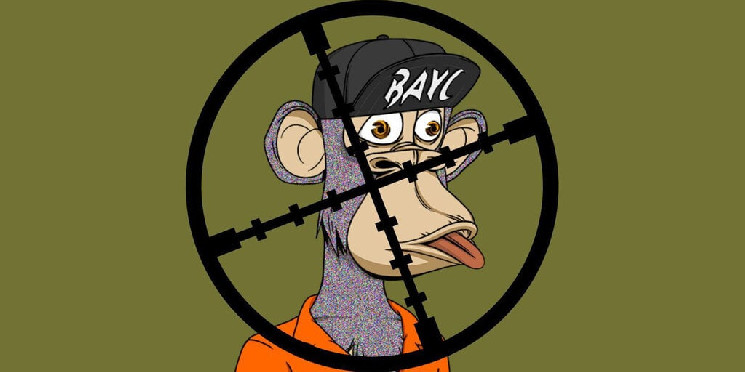When NFT marketplace OpenSea announced this last week that the country expects a lawsuit from the US Securities and Exchange Commission (SEC), panic bubbles sounded far and wide throughout the cryptosphere. The US government opened a major new front in its war on crypto: it finally entered the heart of the NFT market.
But what does the development actually mean? Is every major NFT project now about to be labeled an illegal, unregistered security project, as some are? fear? Or are only projects that demand a lot of money at risk of legal supervision?
While it may take some time before the SEC makes its position clear, Legal experts said Declutter that previous NFT-related enforcement actions by the SEC and statements from the agency’s leadership indicate that a large number of NFT projects – those that have made certain marketing decisions – could be involved in future lawsuits. But probably not at first, and not all at once.
“They always look for what they consider to be the lowest hanging fruit first,” said Jeremy S. Goldman, a litigation attorney who focuses on NFT regulation. Declutter. “They just pick the fifty projects with the most egregious fact patterns.”
For Goldman, “egregious” means two things in particular: projects that either indicated some kind of return on investment when they first brought their NFTs to market, or projects that promised utility in the form of a team of people who would will work on increasing the brand or IP value of the collection. “Those are the hallmarks of an investment,” Goldman said.
In other words, the SEC will likely follow the same playbook it used when it went after the dozens of crypto startups that raised money through ICOs. If you’re a startup that raised money by selling NFTs to build a product, you may find yourself in the crosshairs of the SEC.
Edward Lee, a law professor at the Illinois Institute of Technology who specializes in NFTs, agrees that the SEC may be tempted to fixate on statements made during a collection rollout, given how the regulator launched its first-ever NFT related enforcement actions last year.
“I think this could be a line they’re trying to draw,” Lee said Declutter. “’Well, if the founder happens to say things that help create the expectation of profit, that’s enough.’”
For his part, Lee believes that such a legal argument would be “ultimately untenable,” regardless of the likelihood that the SEC would pursue this argument. He points to other asset classes, such as real estate: For example, a housing developer might tell you that you’re buying into a great neighborhood that will increase in value over time, but doing so won’t turn the house from a commodity into a commodity. a security.
Of course, a house is generally not considered a “joint business” either– as, for example, a startup would be – which is one of the four pillars of the Howey Test, the legal framework used to determine whether an asset or transaction qualifies as a type of security known as an “investment contract.”
Another argument that Lee disagrees with — but that he thinks the SEC will ultimately pursue — is that any project with guaranteed royalties from its creators could be considered a securities offering.
When it took an enforcement action against the Mila Kunis-produced, NFT-powered web series Stoner cats Last fall, the SEC suggested that creator royalties were included in its analysis. The Commission said in its order against the project that since Stoner Cats collected a 2.5% fee for each secondary sale of the NFTs, it demonstrated the team’s commitment to ensuring the long-term value of the project. The greater the value of each NFT and the more sales occurred, the more revenue the Stoner Cats team would generate from collecting royalties.
If creator royalties are part of the standard the SEC relies on to classify NFT projects as securities, it could spell a lot of trouble for the industry. Most major NFTs, from renowned digital works of art until flashy profile photo (PFP) collections, you collect these fees as a industry standard.
However, Goldman is skeptical that the SEC would spend its time and resources pursuing iconic NFT collections such as CryptoPunks. Despite the fact that CryptoPunks are now renowned investments that can be dazzling, several million dollars The trial attorney said it would likely be too difficult for the SEC to prove that the collection was originally designed and marketed for investment purposes. CryptoPunks were originally minted for free, and the studio behind the collection only kept 1,000 of the total 10,000 NFTs for themselves.
“That just wasn’t the origin story for them,” Goldman said. “It was much more organic and viral.”
If the SEC ultimately sues OpenSea, it could be months before the public learns what specific action that is NFT collections sold on the site qualify as illegally traded securities, according to the Commission.
But according to former SEC prosecutor Arthur Jakoby, OpenSea may already be privately aware of the NFT collections the agency is targeting.
While Wells notes that the comment OpenSea received may be vague, Jakoby shared Declutterit is common for SEC attorneys assigned to a lawsuit to call attorneys and explain in detail the alleged facts of the case, including which specific assets are classified as securities.
“It is likely that Wells’ message does not identify which NFTs the SEC considers securities,” Jakoby said. “But that could be it [OpenSea] knows exactly which NFTs are securities according to the SEC.”
OpenSea did not respond Declutter‘s request for comment on this story.
Edited by Andrew Hayward and Guillermo Jimenez

